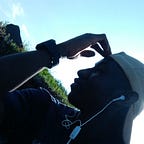Opinion: What Differentiates the Zaure Circle from an Online Setting?
I was running a quick contrast between the experience(s) I've had studying certain sciences at the zaure —indigenous West African knowledge circle— and an online madrasa system. Take 'ilm al kalam or usul, for example. For kalam, one of the first terminologies you come across ab initio is "حكم" which later branches into its three constituents:
الحكم العقلي •
الحكم الشرعي •
الحكم العادي •
For the average Zaure teacher, if the text being taught is a primer (matn) which doesn't do a lot of explaining, all you get is a literal translation of the word. So حكم just becomes "hukunci" and its constituents "hukuncin hankali", "hukuncin shari'a" and "hukuncin al'aada" respectively. Everything is reduced to a simple translation and it ends there. But in an online setting, the teacher, though teaching a basic primer, could take about 30 minutes to make the students well acquainted with what the terminology means in kalam and what it entails. الحكم إثبات أمر لأمر أو نفيه عنه," you're taught. Examples further exploring the concept follow.
With this approach, students are able to properly conceptualise issues and give them a befitting context.
الحكم على شيء فرع عن تصوره
I'm not saying that our scholars aren't doing well. They are. In fact, they're why we are able to also have opinions. The only thing I'm pointing out to students especially is that we should know what to study and whom to study it with. The moment we're able to make that distinction, we'll be able to save ourselves a great deal of time and effort. Not all sciences are taught as they're supposed to.
وبالمثال يتضح المقال
